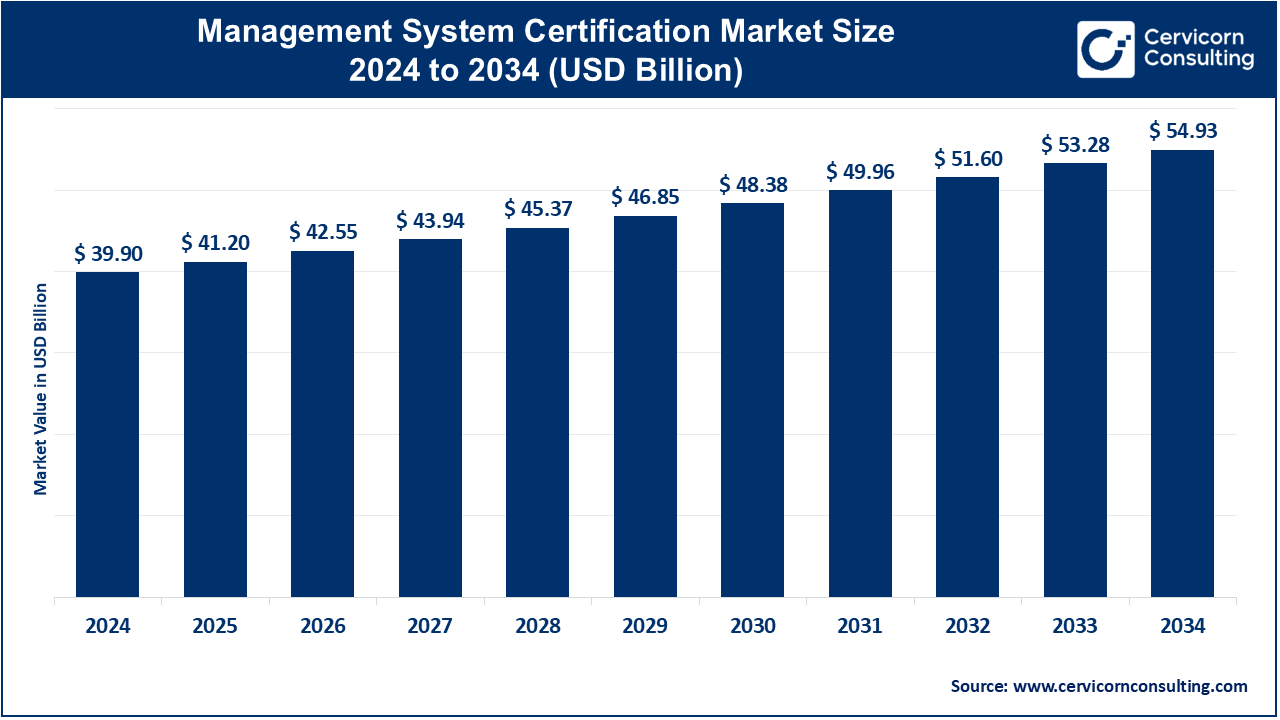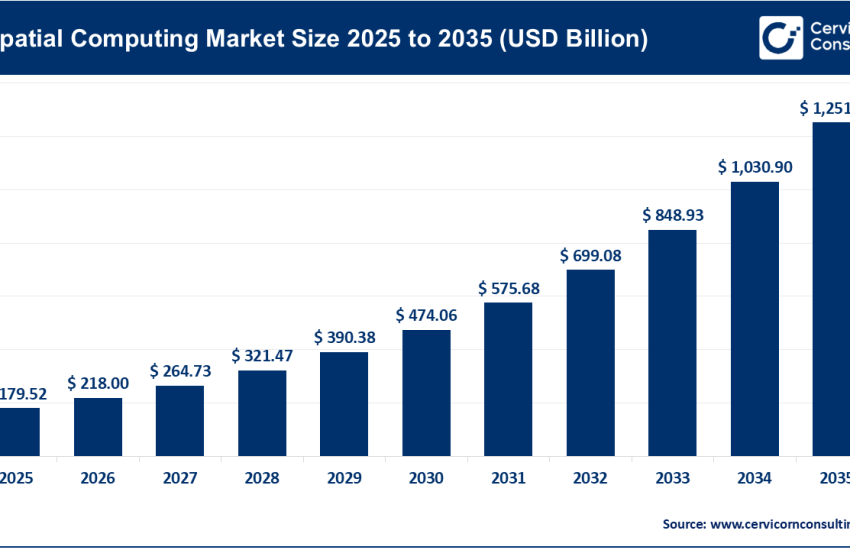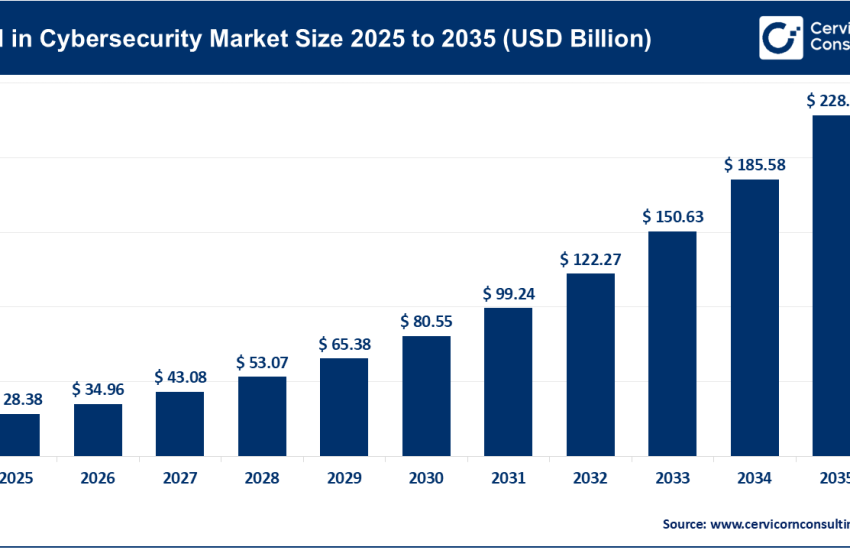Management System Certification Market Size, Growth Projections, and Key Trends 2025-2034
What is the current size of the management system certification market, and what are its growth projections?
Current Valuation:
The global management system certification market was estimated at around USD 39.9 billion in 2024 and is projected to grow at USD 54.93 billion by 2034, with a compound annual growth rate (CAGR) of 3.25%.
Key Drivers:
- Rising Adoption of Certifications (ISO 9001, ISO 14001, ISO 45001):
Organizations across industries are increasingly seeking certifications such as ISO 9001 (Quality Management), ISO 14001 (Environmental Management), and ISO 45001 (Occupational Health and Safety Management). These certifications are globally recognized benchmarks that demonstrate a company’s commitment to quality, sustainability, and employee well-being. For businesses, achieving these certifications enhances operational efficiency, minimizes risks, and improves their market reputation, making them more attractive to clients, investors, and regulatory bodies. - Impact of Globalization:
With businesses expanding across borders, standardization has become critical for ensuring consistent operations and quality. Management system certifications offer a universally accepted framework that helps companies streamline processes, reduce variability, and maintain compliance with international trade regulations. This standardization not only facilitates smoother global operations but also builds trust with international partners and customers. - Increased Consumer Awareness of Ethical Practices and Quality:
Consumers today are more informed and conscious of the practices behind the products they purchase. There is a growing preference for brands that adhere to ethical practices, environmental sustainability, and superior product quality. Certifications serve as a visible assurance of a company’s adherence to these standards, influencing consumer trust and loyalty. This trend has driven companies to pursue certifications to remain competitive and meet evolving customer expectations.
Get a Free Sample: https://www.cervicornconsulting.com/sample/2459
Who are the leading players in the management system certification market, and what are their key offerings and competitive advantages?
The management system certification market is characterized by the presence of several established players offering a wide range of certification and compliance services. Below is an overview of the competitive landscape of the key companies in this sector:
ASTM International
- Overview:
An international standards organization that develops and publishes technical standards for a wide range of industries. While primarily known for its standards development, ASTM also provides management system certification services. - Key Offerings:
Focuses on certifying processes related to safety, quality, and sustainability across industries like construction, manufacturing, and healthcare. - Competitive Edge:
Strong reputation for standard development and a well-established global presence in the certification ecosystem.
DNV Group AS
- Overview:
A global leader in certification, assurance, and risk management, DNV is known for its expertise in sustainability and digital solutions. - Key Offerings:
Specializes in ISO certifications (ISO 9001, ISO 14001, ISO 45001), environmental management systems, and supply chain certifications. - Competitive Edge:
Pioneering digital assurance tools and sustainability certifications, particularly in energy, maritime, and industrial sectors.
DQS Holding GmbH
- Overview:
A globally active certification body with a strong emphasis on quality management and customer-centric certifications. - Key Offerings:
Services include ISO certifications (ISO 9001, ISO 14001, ISO 27001) and sector-specific certifications such as IATF 16949 for the automotive industry. - Competitive Edge:
Focus on high-quality audits, expert-driven solutions, and a strong network of local offices in over 50 countries.
Drata Inc.
- Overview:
A technology-driven compliance automation company that offers simplified certification processes, particularly for cybersecurity standards. - Key Offerings:
Automates compliance with frameworks like SOC 2, ISO 27001, and GDPR using advanced SaaS platforms. - Competitive Edge:
Innovative use of automation to streamline the certification process, making it ideal for tech companies and SMEs looking for quick compliance solutions.
Holding Socotec
- Overview:
A prominent player specializing in testing, inspection, and certification services, with a strong focus on risk management and compliance. - Key Offerings:
Provides certifications across quality, health, safety, and environmental domains. Strong focus on the construction and infrastructure sectors. - Competitive Edge:
Expertise in the built environment and industrial sectors, supported by extensive global operations.



